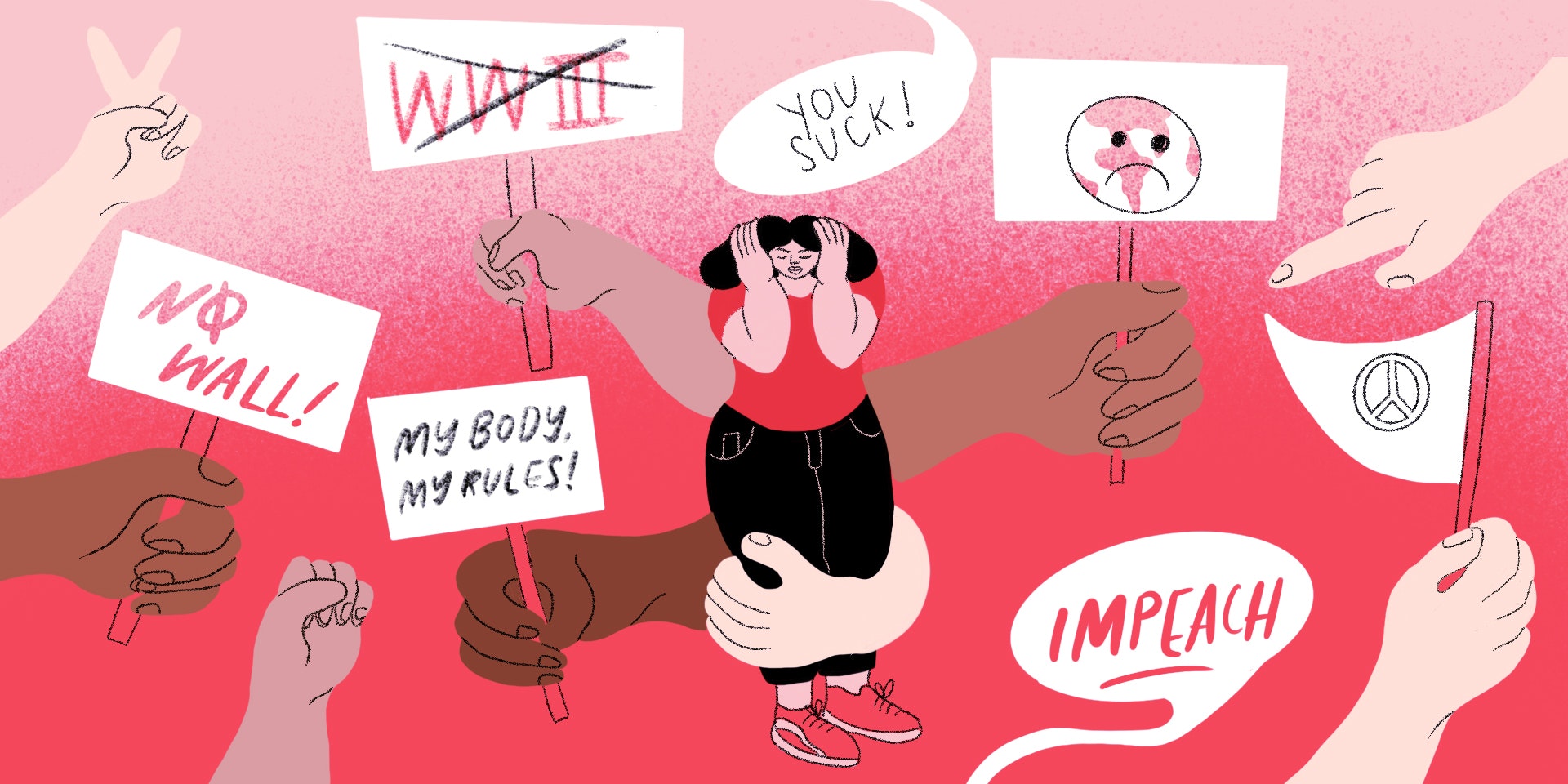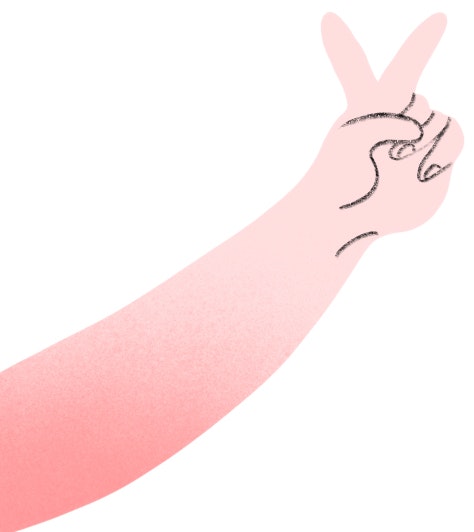More than one pandemic
It’s Time to Pay Attention to How the Wealth Gap in the US Manifests
The wealth gap in the US is getting bigger. So why, when it is more crucial than ever, is it still so hard to talk about the interlacing of class and race?
Accumulating mental health costs
Millennial and Gen-Z activism is more widespread than ever. It’s worth examining the potentially negative effects of this work—especially when it comes to mental health.

“Today was rough,” my coworker sighed as I locked the door of our apartment-turned-office.
I nodded in agreement, my thoughts split between the bleeding blisters on my toes and the disappointing amount of money I fundraised for Planned Parenthood that day. We walked down the stairs in silence and as we said our lackluster goodbyes, I was hit with the realization that working in politics was more challenging than I could have prepared for.
In August of 2019, I accepted a job as an assistant canvassing director with a political organization. Though I had always been interested in politics—and felt further provoked by the Trump administration—I was shocked by the situation I found myself in. My boss warned me that the job wasn’t for everyone, but I pushed forward, driven by passion and the desire to change the administration’s treatment of marginalized people.
Since Trump's election, significant social issues—from climate change and reproductive rights to immigration and gun control—have bubbled up across the nation. Often, resistance efforts have been led by millennials and Gen Z. And while passionate activists—from Black Lives Matter to Stoneman Douglas High School students—continue to demonstrate the powerful impact and indispensability of their work, it’s also worth examining the potentially negative effects of political and activism work—especially when it comes to mental health.
Millennials and Gen Z alike value mental illness awareness and emotional self-care more than any other generation. At the same time, the subset of society that involves itself in activist work is often presented with challenges that go beyond the ‘normal’ everyday job—like lengthy days, volatile social, political, and environmental causes, and an immense pressure and responsibility for making a difference.

I, too, was affected by these feelings while working as a political canvasser. Between the intense hours and six-day workweek, I saw my co-workers more than my own family. The job itself caused extremely high levels of stress and exacerbated my anxiety and depression, primarily due to a lack of time off and the knowledge that my work was directly tied to human rights. And I’m not the only one who has felt this way.
“There have been days when my job has completely crushed me,” says Rachel, 22, a canvassing director in New York City. Her company works with nonprofits and raises money for immigration and reproductive justice initiatives. Though she is dedicated to the causes she fights for, the opposition she faces on a near-daily basis can make the job difficult and takes a toll on her mental health. “You are surrounded by a ton of opposition from people that don’t entirely understand what [you] are saying and yet disagree with you so vehemently.”
Rachel admits that her job offers limited space for self-care and that she actively has to carve that time out herself. She adds that shutting off can often be a big challenge as her work, quite literally, follows her home. “Something will always come up in the news—on social media, on TV—that has to do with what I do every single day,” she tells Supermaker.
Dr. Paul C. Gorski, the director at the Equity Literacy Institute and a lifelong activist, sought to deep-dive into activist burnout when he and two other authors embarked on a research mission exploring the subject. While doing this work, he experienced the stressors of activism head-on, gaining insight into the variation of anxieties and how they may manifest.
“There’s this self-imposed pressure based on people desperate to end the suffering. Think about racial justice activists who understand, not just individual suffering, but mass structural suffering,” Dr. Gorski tells Supermaker, noting the additional stress that stems from the way activists are characterized by media and government. “[Activists] exhibit reasonable behaviors, given the conditions they’re dealing with and the injustices they understand so deeply.”
To be sure, there are many surface-level solutions available. Dr. Gorski points to the seemingly simple solution of saying “no” while trying not to feel responsible for being involved in everything. Additionally, he suggests being careful, whenever possible, about which organizations to work with. Perhaps the most pressing resolution to these issues is to cut down on burnout—but how?
When identifying possible solutions, Dr. Gorski expresses the need for convenient and approachable resources within the organizations themselves. He states that many activists regularly internalize the widespread suffering they witness, further exacerbating effects of burnout and mental illness. And, for those whose identities and lived experiences are inextricably tied to their activist work—particularly marginalized individuals facing institutionalized racism and systemic oppression—these challenges can be even more pronounced.

Activism has become part of our social fabric. With increasingly tense political climate and human rights violations, movements continue to pop up across the nation as individuals fight for their rights and those of others’. Given this, adjustments that better account for the psychological toll of this type of work—such as building resources into organizational structures, implementing and practicing boundary-setting, and making mental health care more readily available—must be prioritized.
The solutions aren’t one-size-fits-all and will vary depending on both the individual and the nature of the work. Choosing organizations or companies that prioritize activist and employee well-being is an important way to help curb burnout. In addition to organizations doing more to account for the wellness of employees and volunteers, there is also a necessity for individuals to do what they can to prioritize their mental health—whatever that may look like. Though self-care may not be a cure-all, it is a foundational step in protecting one's own wellbeing, particularly in this line of work.
We cannot continue pretending that dealing with human rights and injustices is easy work—if anything, it’s one of the most difficult actions and should be treated as such. As activism becomes more vital and widespread, recognizing and addressing the mental health toll of this work is not only necessary, it may be the only way forward. After all, says Dr. Gorski, “attending to burnout should be seen as part of the activism—not as something outside [of it].”
Sign me uppp
Sign up for our newsletter: Supernews.